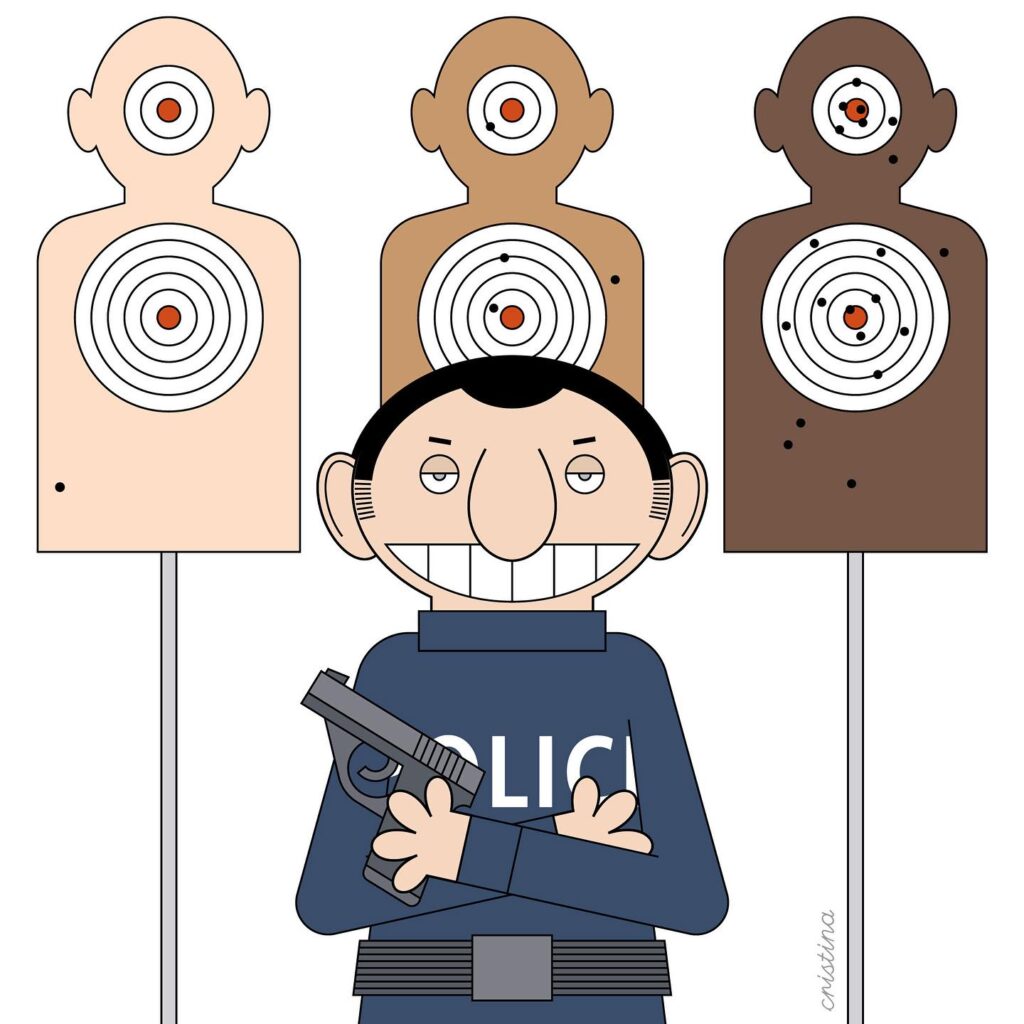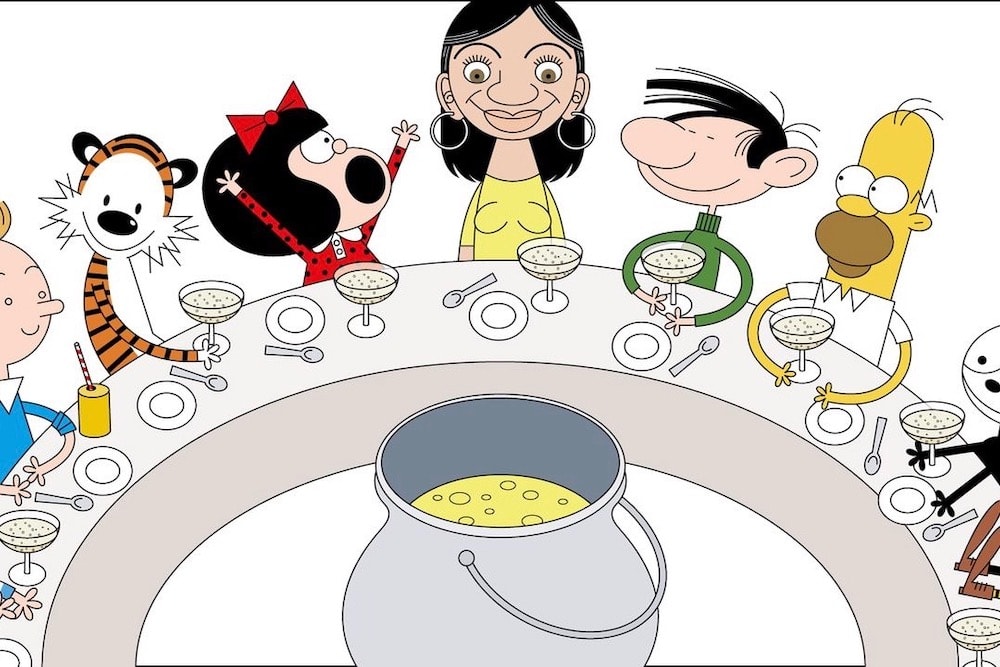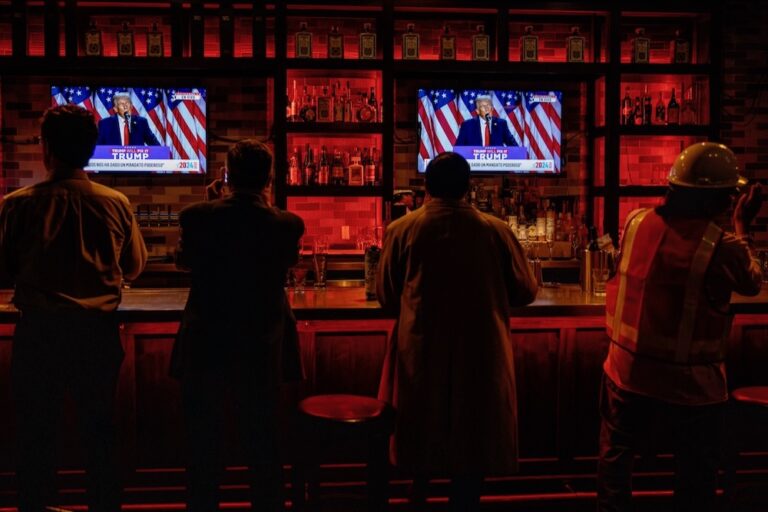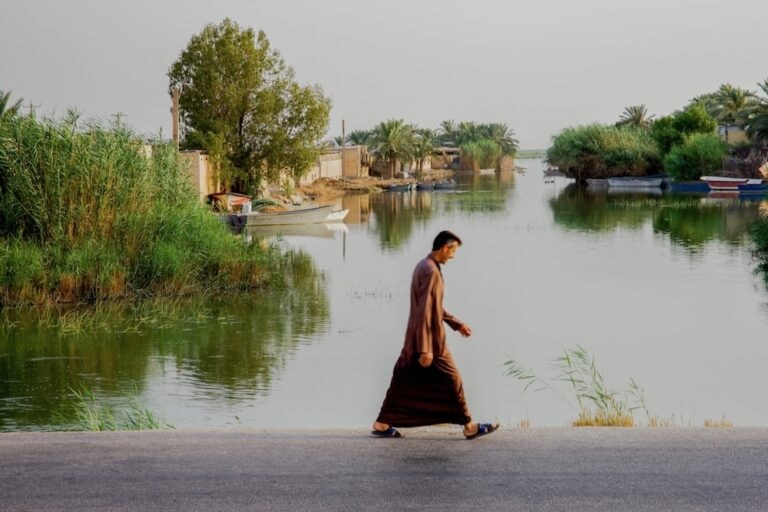CARTOONISTS RIGHTS responds to a rash of commentary and punitive actions from political figures and their allies against popular press cartoonists in their respective countries.
This statement was originally published on cartoonistsrights.org on 10 August 2023.
As the long hot summer continues, CARTOONISTS RIGHTS responds to a rash of commentary and punitive actions from senior political figures and their allies against some of the most popular press cartoonists in their respective countries.
Multiple interventions from politicians in recent weeks give us cause for concern.

Cristina Sampaio’s cartoon commenting on police violence and racism. Source: Facebook/Cristina Sampaio | Cartoon & Illustration
We are very seriously alarmed to learn that a criminal complaint has been filed by one of Portugal’s police unions over an animated cartoon by Cristina Sampaio, shown by the RTP public broadcaster on July 7th, part of its weekly Spam Cartoon feature.
The cartoon was about police violence and racism, and the ensuing riots in France that made headlines following the shooting of youth Nahel Merzouk on June 27th; nonetheless it has been mischaracterised as undue criticism of Portuguese forces. The SNCC union alleges that “the piece [the cartoon], in addition to being defamatory, is also suitable for instigating public disorder.” The state attorney will decide whether the complaint proceeds to court.
Yet more disturbing are the reported “displeasure” of the minister of internal affairs José Luís Carneiro, evidence of inflammatory comments from the far-right, and a post from Spam Cartoon on its Facebook page describing menacing messages from individuals purporting to be police officers.
In South Africa, we see that the chairperson of the Democratic Alliance (DA), Helen Zille, took to Facebook and posted a lengthy critique of Brandan Reynold’s cartoon that appeared in Business Day newspaper on August 1st. Our friends at Africartoons have a full rebuttal on their page, saying:
“Perhaps the DA’s [electoral] chances would be best served if they showed more tolerance towards the media, even when it is critical of them, as a demonstration of how they would govern. Or are they showing us their true colours?”
– John Curtis, AFRICARTOONS
And on August 4th news broke of a lawsuit mounted by Arianna Meloni – sister of the Italian prime minister, and wife of the agriculture minister – against cartoonist Mario Natangelo over a cartoon published in Il Fatto Quotidiano newspaper last April.
The cartoon depicts Meloni in bed with a lover, her husband Francesco Lollobrigida being at work. The joke arises from Lollobrigida’s comments on the “ethnic replacement” of workers, and the man in bed being of colour. Local sources report that the cartoon was examined by the Italian Ordine dei Giornalisti earlier this summer and was not found to have breached their code of ethics.
Despite this, Ms Meloni is evidently determined to see the cartoonist in court. We note that Natangelo has stated that he will make no further comment in public, that the matter rests with his lawyers, and that the newspaper’s editorial board has mounted a spirited defense.
In every case, a pointed intervention from a politician will have a chilling effect on all cartoonists in the locality, whether or not they lead to successful litigation, an apology, or withdrawal of a cartoon. The point is to discourage. Public figures in positions of authority, and most especially those in government, must understand that criticism is part of the job and that includes satire. Also, speaking to an audience of adherents in a politicised atmosphere can have very serious, albeit unintended consequences.
Most urgently, we call for the immediate withdrawal of the criminal complaint against Cristina Sampaio as it arises entirely from an imagined slight against officers who were not the subject of the cartoon concerned.



